1. Chevrolet
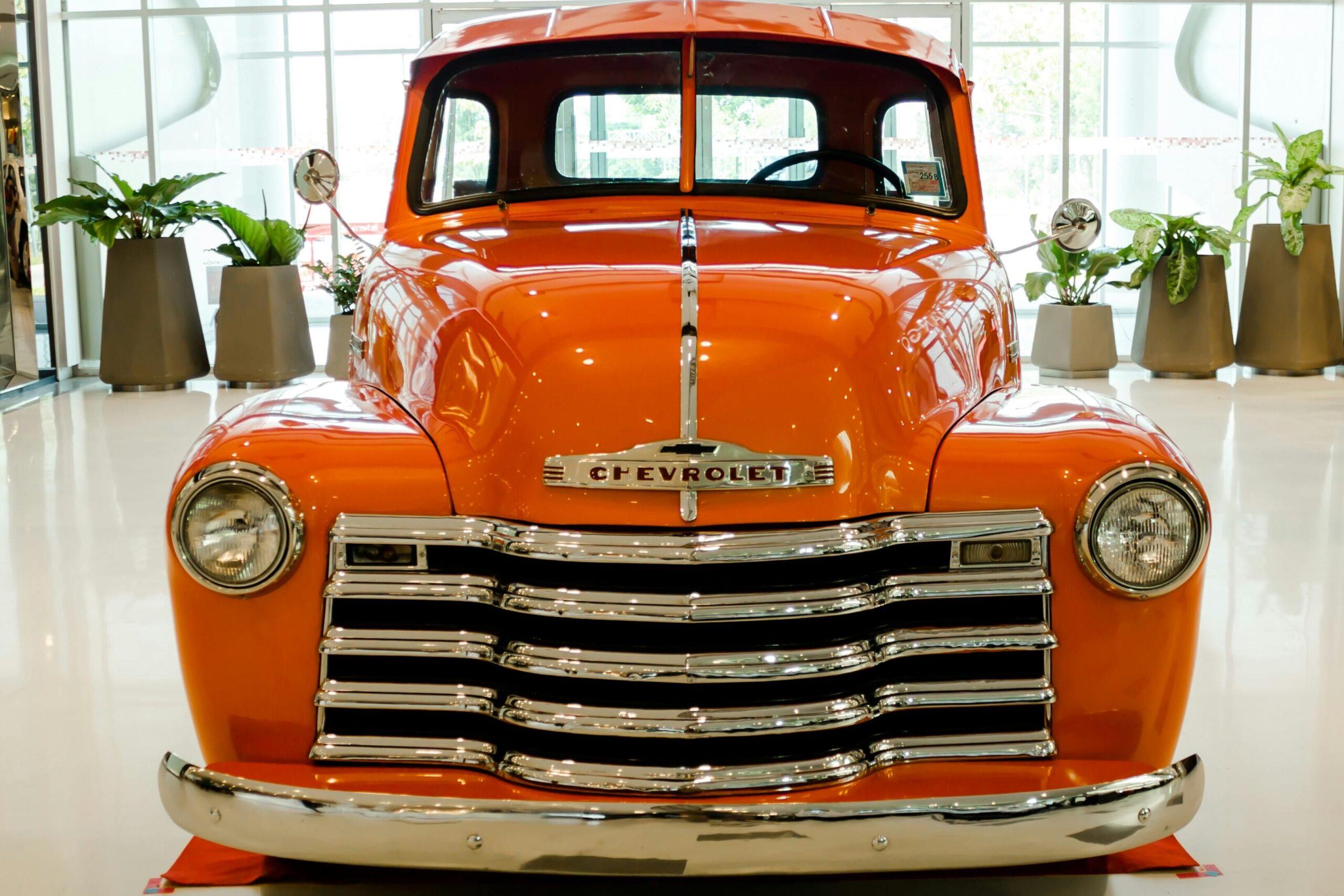
Chevrolet, or “Chevy,” has a stronghold on the American car scene, known for both its mass-market appeal and high-performance vehicles, according to Randell Suba from TopSpeed. From the everyday Chevrolet Malibu to the roaring Corvette, Chevy covers a wide range of consumer needs. The Corvette, in particular, has stood the test of time as one of the most famous performance cars in the world, blending style, speed, and American muscle. Chevy’s impact extends far beyond the U.S., with the brand becoming a symbol of American automotive engineering worldwide.
Chevy’s success isn’t just in performance cars—it’s also in innovation. The Chevrolet Silverado is one of the best-selling trucks in the country, and the company’s push toward electric vehicles, like the Chevrolet Bolt, is setting the stage for a new generation. Through its massive influence on the truck market, as well as its contributions to sports cars, Chevy remains a cornerstone of American automotive culture. Their combination of high-quality performance, versatility, and global presence gives them a well-earned spot near the top.
2. Ford

No list of iconic American car brands would be complete without Ford, according to Ashlyn Messier from Fox Business. The company revolutionized the automobile industry with the introduction of the Model T in 1908, making cars affordable for the average American and forever changing mass production. Ford’s legacy doesn’t stop at the past—its modern lineup, including the F-150 and Mustang, continues to dominate. The brand’s dedication to performance, versatility, and innovation ensures its place at the top.
When it comes to performance, Ford has shown up with iconic vehicles like the Mustang, a symbol of American muscle and speed since 1964. The company’s trucks, especially the F-150, are known for their power and dependability, earning them a lasting reputation in the automotive world. Ford’s embrace of electric vehicles with the Mustang Mach-E and the all-electric F-150 Lightning also shows that this brand isn’t just living in the past. Whether you’re into performance cars or rugged trucks, Ford’s versatility and performance keep it at the forefront of American car brands.
3. Dodge
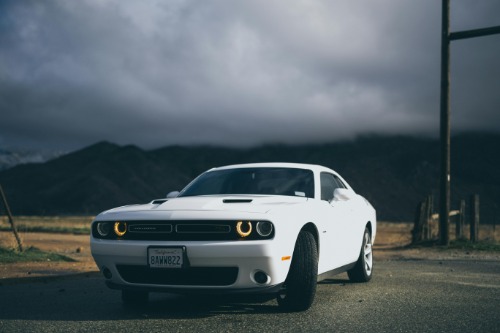
Dodge is the ultimate symbol of American power and performance, known for delivering some of the most thrilling muscle cars and trucks. From the legendary Dodge Charger to the beastly Dodge Challenger, this brand has become synonymous with raw power, performance, and style. For decades, Dodge has embraced a no-holds-barred approach to design, with cars built for speed and excitement. The brand’s focus on performance over luxury makes it a standout in the world of American muscle.
The impact of Dodge goes beyond just speed—it’s a cultural touchstone. Vehicles like the Challenger and Charger aren’t just cars; they’re symbols of rebellion and American boldness, appealing to generations of enthusiasts. With the release of the Dodge Ram trucks, the brand also carved out a niche in the pickup market, known for rugged durability and strength. By focusing on both performance and an undeniable presence, Dodge has solidified its place in American car history.
4. Tesla
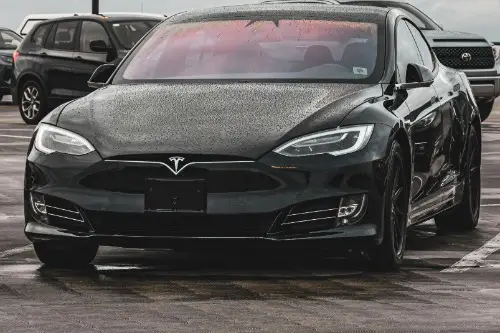
Tesla has quickly become one of the most influential and forward-thinking car brands in America, according to Forbes. Founded by Elon Musk in 2003, Tesla revolutionized the electric vehicle market by showing that electric cars can be sleek, fast, and desirable. With the introduction of the Model S, the brand not only redefined the EV space but also set the standard for what a luxury electric car could be. Tesla’s influence on the auto industry is undeniable, and its impact continues to grow, pushing the boundaries of what’s possible with technology and sustainability.
Performance-wise, Tesla has set the bar for electric cars with their astonishing acceleration and innovative features. The Tesla Model 3 has made EVs more accessible to the average consumer, while the Roadster and Model S Plaid remain benchmarks in high-performance electric cars. Tesla’s commitment to innovation, particularly in self-driving technology and battery advancements, makes it a game-changer in the automotive world. As the leader in electric vehicles, Tesla is shaping the future of the entire car industry.
5. Jeep

When you think of adventure and off-roading, Jeep is the first brand that comes to mind, Larry P. Vellequette from Autoweek explains. Known for their rugged and durable vehicles, Jeeps have been a symbol of American adventure since the 1940s. Originally designed for military use, the Jeep quickly became a favorite among civilians thanks to its ability to handle any terrain. Over the decades, the brand’s legacy has only grown stronger, with vehicles like the Wrangler continuing to be the go-to for outdoor enthusiasts.
Performance-wise, Jeeps are built to conquer almost any landscape, from rocky mountains to sandy deserts. The brand’s signature 4×4 capability makes it a standout in off-roading, while newer models like the Grand Cherokee offer a more refined driving experience without sacrificing performance. Jeep has also ventured into the electric vehicle market with the introduction of the Jeep Wrangler 4xe, showing that it’s not afraid to innovate. Whether for casual city driving or extreme off-road adventures, Jeep’s impact on the American car industry is undeniable.
6. Buick
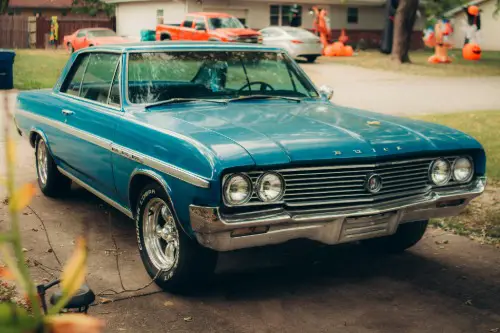
Though often overshadowed by its flashier counterparts, Buick deserves recognition for its long-standing legacy and innovative contributions to the American automotive industry. Founded in 1899, Buick has become a symbol of American luxury and craftsmanship, especially known for its smooth ride and comfortable features. While it may not scream excitement like some of its competitors, Buick has always excelled in offering refined and reliable vehicles. Over time, the brand has evolved to blend comfort with modern technology, making it a top choice for those seeking a quality driving experience.
In terms of performance, Buick has consistently delivered vehicles that prioritize smooth handling and luxury, like the Buick Enclave or the Regal GS. It was also an early adopter of hybrid technology, introducing the Buick LaCrosse Hybrid, and has continued to evolve with the times. The brand’s dedication to innovation, comfort, and practicality has made it an essential player in the American auto market. Though it may not be the most flashy, Buick’s consistent performance and ability to adapt have earned it a strong spot in automotive history.
7. Cadillac
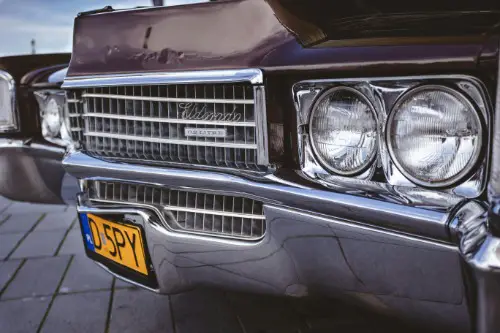
Cadillac is synonymous with American luxury, known for its opulence, style, and premium performance. Since its founding in 1902, Cadillac has been at the forefront of the luxury car market, setting the standard for quality and sophistication. With their iconic tailfins and plush interiors, Cadillacs have represented American wealth and status for generations. The brand’s reputation for high-end vehicles has made it a symbol of success, particularly in the 1950s and 1960s.
Cadillac continues to deliver in terms of both performance and innovation, with cars like the Escalade redefining the full-size luxury SUV. The introduction of electric vehicles, such as the Cadillac Lyriq, shows that Cadillac is committed to staying relevant in a changing industry. The brand’s high-performance V-series models, like the CTS-V and the CT6-V, compete with European luxury performance cars, proving Cadillac can hold its own on the global stage. Cadillac’s legacy of American luxury, combined with its ongoing innovation, secures its place among the most iconic car brands.
8. Lincoln
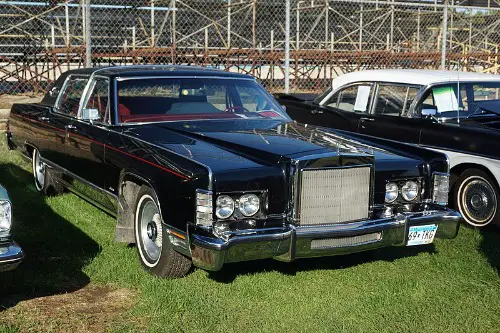
Lincoln has long been a symbol of elegance and luxury, focusing on delivering a refined and premium experience for American drivers. Founded in 1917, it has become synonymous with sophisticated design, comfort, and cutting-edge technology. Known for its full-size sedans and SUVs, Lincoln’s vehicles have always prioritized interior quality and a smooth, quiet ride. Models like the Lincoln Continental and Navigator have solidified Lincoln’s reputation as a luxury brand that understands American taste.
While Lincoln has often been overshadowed by its luxury counterparts, the brand has recently reinvented itself with new models like the Lincoln Corsair and the electric Lincoln Aviator. These vehicles combine the brand’s commitment to luxury with modern technology and sustainability. Lincoln’s presence in the luxury market, bolstered by its long history and emphasis on comfort, ensures that it will remain a staple of American automotive culture. With its combination of legacy and fresh innovation, Lincoln continues to leave a lasting impression.
9. Ram
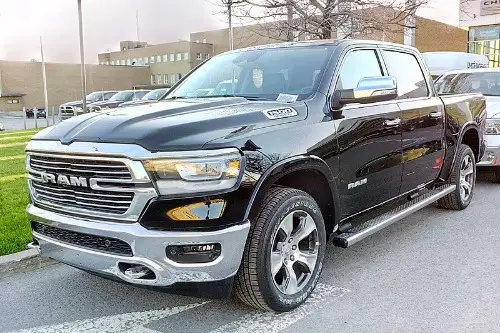
Ram may not have the same historical clout as some of its competitors, but it’s made a significant impact on the American truck scene in recent years. Originally part of Dodge, Ram became its own brand in 2009 and quickly built a reputation for high-performance, rugged trucks. With models like the Ram 1500 and the heavy-duty 2500, Ram has earned a loyal following among those who need power, towing capacity, and durability. Ram’s focus on performance and luxury has also given rise to the upscale Ram 1500 Limited, blending rugged capability with a refined interior.
In terms of impact, Ram trucks have been at the forefront of innovation, with features like the EcoDiesel engine and an air suspension system for a smoother ride. The brand has also carved out a niche for performance-minded truck enthusiasts with the Ram Rebel and the Ram TRX, which offers off-road capabilities combined with monstrous horsepower. As a newer player in the game, Ram has quickly established itself as a major force in the American truck market, competing head-to-head with the likes of Ford and Chevy. Its emphasis on combining performance with a high-end experience sets Ram apart in the truck world.
10. Plymouth (Historical Impact)

Though it no longer exists as a car brand, Plymouth holds a key place in American automotive history. Founded in 1928, Plymouth quickly became one of the “Big Three” American car brands alongside Ford and Chevrolet. It was known for its affordable vehicles, which allowed the middle class to own cars without breaking the bank. Plymouth gave us the iconic Plymouth Barracuda and the Plymouth Road Runner, which helped define the muscle car era of the 1960s and 1970s.
Plymouth’s impact on performance, especially in the muscle car and compact car markets, can still be seen today in the muscle car resurgence. The Barracuda, which predated the legendary Ford Mustang, was one of the first American pony cars, setting the stage for the high-performance vehicles that followed. Unfortunately, Plymouth was discontinued in 2001 due to changing market demands and competition from other Chrysler brands. While it’s no longer in production, Plymouth’s influence on American car culture—especially in terms of affordable performance cars—remains undeniable.
11. Pontiac (Historical Impact)
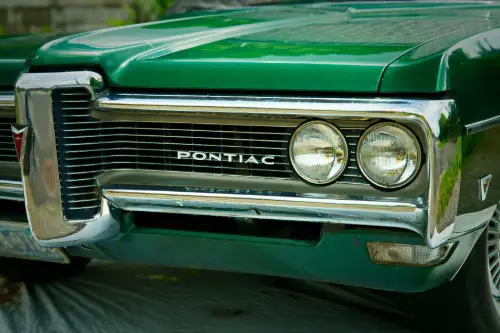
Another brand that’s no longer around but remains a huge part of American automotive culture is Pontiac. Established in 1926 as part of General Motors, Pontiac became known for building sporty, performance-focused vehicles that appealed to a broad audience. With models like the GTO, Firebird, and Trans Am, Pontiac defined the muscle car era of the 1960s and 1970s, with the GTO widely regarded as one of the first true muscle cars. The brand’s aggressive marketing and focus on performance turned it into a cultural icon during its peak years.
Pontiac’s impact on the American auto industry is largely defined by its role in shaping the performance car market. The GTO and Trans Am were not just cars—they were symbols of American speed, power, and rebellion, fueling the muscle car culture. While Pontiac was ultimately discontinued in 2010, its legacy lives on in the muscle cars that followed and the influence it had on American automotive styling. The brand may be gone, but Pontiac’s roar is still heard through the vehicles it inspired.
12. Mercury (Historical Impact)
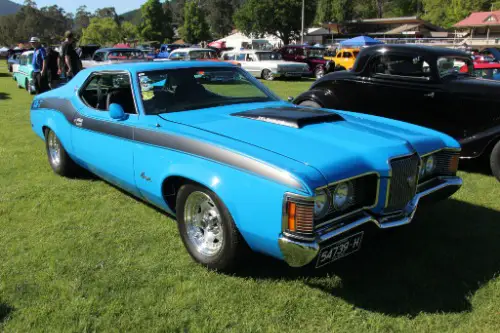
Much like Plymouth and Pontiac, Mercury was once a popular and influential car brand that is no longer around today. Launched in 1939 as a division of the Ford Motor Company, Mercury was designed to fill the gap between Ford’s mainstream offerings and its luxury brand, Lincoln. Known for producing well-built, stylish cars, Mercury was home to iconic vehicles like the Mercury Cougar, a sporty, affordable coupe that became an instant classic. For much of the 20th century, Mercury enjoyed a loyal following, with a particular emphasis on creating vehicles that blended comfort and performance.
The Mercury Cougar was a direct competitor to the Ford Mustang and is remembered for its muscular styling and thrilling performance. Mercury’s influence was seen in the way it catered to a wide range of consumers—from budget-friendly sedans to sleek sports cars. Though the brand was discontinued in 2010, its impact on American car design, particularly in the 1960s and 1970s, remains relevant to enthusiasts today. The blend of style and performance that Mercury offered paved the way for future Ford performance vehicles.
13. Chrysler
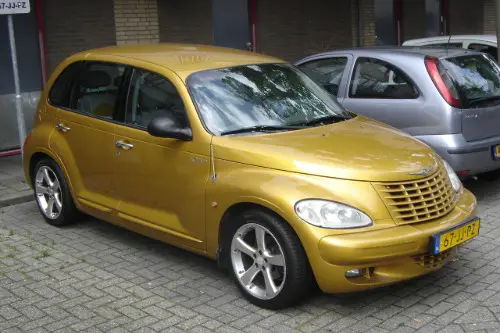
Chrysler, one of the Big Three American automakers, has been a staple of the American car scene for nearly a century. Founded in 1925, the brand made a name for itself with high-end, luxury vehicles and innovative designs. Throughout the years, Chrysler has produced some of the most iconic American cars, including the Chrysler 300, a symbol of power and luxury, and the minivan, which the company helped popularize in the 1980s. Chrysler’s combination of style, comfort, and practicality has made it a go-to brand for families and luxury car buyers alike.
Performance-wise, Chrysler is known for its engineering prowess and commitment to creating vehicles that balance performance with comfort. The Chrysler 300, for example, offers a V8 engine that provides plenty of power without sacrificing a smooth ride. Chrysler also played a significant role in the development of the modern minivan, with the Dodge Caravan and Chrysler Town & Country becoming the ultimate family vehicles. Even today, the Chrysler Pacifica remains one of the top-rated minivans, solidifying the brand’s lasting impact on American automotive history.


